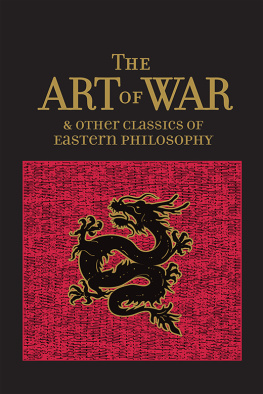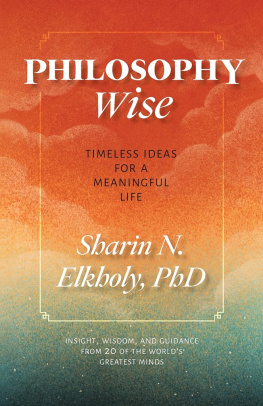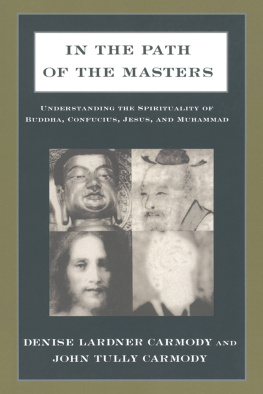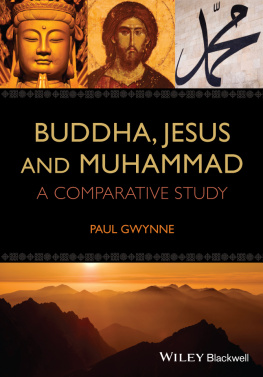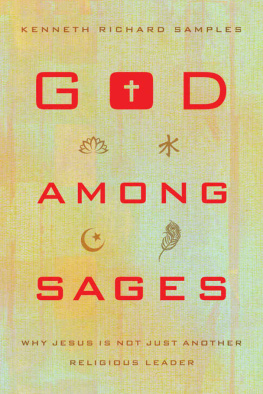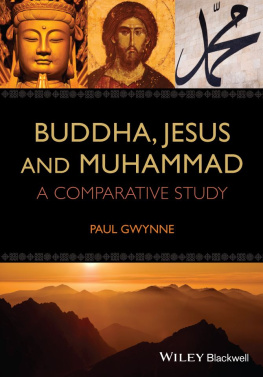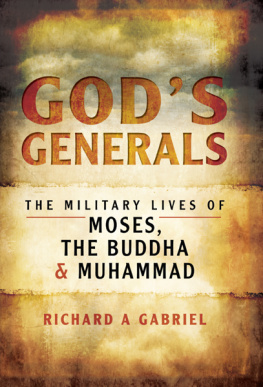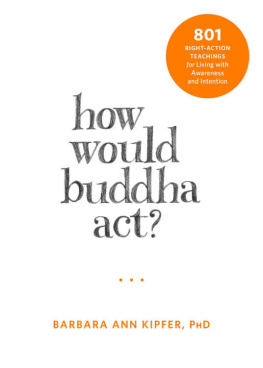Four Wise Men
The Lives and Teachings of Confucius, the Buddha, Jesus, and Muhammad
Mark W. Muesse

FOUR WISE MEN
The Lives and Teachings of Confucius, the Buddha, Jesus, and Muhammad
Copyright 2017 Mark W. Muesse. All rights reserved. Except for brief quotations in critical publications or reviews, no part of this book may be reproduced in any manner without prior written permission from the publisher. Write: Permissions, Wipf and Stock Publishers, W. th Ave., Suite , Eugene, OR 97401 .
Cascade Books
An Imprint of Wipf and Stock Publishers
W. th Ave., Suite
Eugene, OR 97401
www.wipfandstock.com
paperback isbn: 978-1-4982-3222-7
hardcover isbn: 97 8-1-4982-3224-1
ebook isbn: 978- 1-4982-3223-4
Cataloguing-in-Publication data:
Names: Muesse, Mark W.
Title: Four wise men : the lives and teachings of Confucius, the Buddha, Jesus, and Muhammad / Mark W. Muesse.
Description: Eugene, OR: Cascade Books, 2017. | Includes bibliographical references.
Identifiers: ISBN: 978- 1-4982-3222-7 ( paperback ) | 978-1- 4982-3224-1 ( hardback ) | 978-1-49 82-3223-4 ( ebook )
Subjects: LCSH: Confucius. | Buddha. | Jesus ChristTeachings. | Muammad, Prophet, 632.
Classification: BL41 M72 2017 (print) | BL41 (ebook)
Manufactured in the U.S.A. January 30, 2017
In Honor of Four Wise Women
Ariyana Prabashwari Muesse
Dhammika Swarnamali Muesse
Lemma Mills Muesse
Prabashwari Wijerathne Pathirage
Choose someone whose way of life as well as words, and whose very face as mirroring the character that lies behind it, have won your approval. Be always pointing him out to yourself either as your guardian or as your model. There is a need, in my view, for someone as a standard against which our characters can measure themselves. Without a ruler to do it against you wont make crooked straight.
Seneca
Acknowledgments
I am deeply grateful to the many colleagues, friends, and family members whose assistance and support have enabled me to bring this book into being. Professors Patrick Gray, John Kaltner, Han Li, Michael Drompp, and Steve McKenzieall of whom are my colleagues at Rhodes Collegeand Nancy Eskridge, Director of Content Development at The Great Courses, generously provided me with thoughtful conversation and suggestions as the manuscript was taking shape. Maddie Carwile and Philip Culbertson furnished invaluable editorial scrutiny. I acknowledge the contributions of my students, too numerous to name, who demonstrated their enthusiasm and insight in the several seminars on Confucius, Buddha, Jesus, and Muhammad that I have facilitated at Rhodes College. A special note of appreciation to Suhail Mirza in London and Wasim Rock in Nazareth, Israel, who have been students from afar and who have become special friends. I thank those whose gift of friendship has sustained me in the years since this project first began. Among them, I am especially appreciative of my dear friends Pat Shade, Joel Chapman, Manoj Jain, David Peacock, Bill Walker, Bill Howell, Steve Haynes, Lu Ivory, Bob Scott, and Hal Bishop. And, as always, I am most grateful for the love of my family: my parents, Billy and Lemma Muesse; my wife, Dhammi; and our daughter, Ariyana. These last three, along with Dhammis mother, Prabashwari Wijerathne Pathirage, are the four wise women to whom this book is dedicated.
A Note on Translations and Transliterations
T his study relies heavily on primary texts that were originally written in languages other than English. Fortunately, most of these texts have been ably translated. In several cases, such as the Analects of Confucius, the New Testament, and the Quran, a great number of excellent translations, in fact, are widely available to English readers. In as much as possible, I have used these translations in my analysis. Often, I quote from several different translations of a single text in order to utilize the version that seems most accurate or apt. Because of this reliance on a variety of translations, there may be slight differences in the transliterations and diacritics of particular words (e.g., Kung and Kong or Quran and Koran). When I am not quoting from a particular translation, I have employed the standard current transliteration system (e.g., the Pinyin rather than Wade-Giles for Chinese). For the sake of simplicity, I have omitted the use of most diacritical markings in the transliterations. Occasionally, I made my own renditions of the primary sources for stylistic or, less frequently, substantive reasons. Throughout the exposition, I have indicated when the rendering is my own.
Introduction
I n 1978, astrophysicist Michael H. Hart published a provocative book that ranked the one hundred people who had most influenced world history. Harts book, titled simply The , argued that the five most influential persons who ever lived were the Prophet Muhammad, Sir Isaac Newton, Jesus of Nazareth, the Buddha, and Confuciusin that order. The books appearance caused quite a stir, especially among folk who thought their particular hero was not rated highly enough or did not make the list at all. Much of the controversy was due to the failure of many to understand the authors intention. Hart was not trying to evaluate and rank the best persons who had ever lived. He was merely making judgments about the impact on history of prominent individuals. Certainly he had a point. While we might quibble about the order, any list of, say, a dozen persons who have most affected the course of human events would surely include Muhammad, Jesus, the Buddha, and Confucius.
While the historical influence of these four can hardly be doubted, what prompts this study is not simply an interest in history, although that fact alone certainly merits comparative investigation. My fascination with this quartet of sages derives from another concern, the same interest that led me to the study of religion and philosophy in the first place: the desire to know how to live life well. After over thirty years of studying the worlds religious and philosophical traditions, I am convinced that these four figures represent some of our finest teachers of the art of living. There are others whom I might rank with Confucius, the Buddha, Jesus, and Muhammad, but no one who excels them. By their lives they have inspired meand obviously countless otherswith their dedication to living deeply and thoughtfully and with the courage they mustered in the face of adversity.
Because of their dual significanceas persons who decidedly shaped history and as teachers who offered compelling visions of how to livethis book addresses both historical and philosophical interests. We will talk about who these men were and what they said but also about the import of their lives and teachings for us today.
The approach to our study is simple, but it requires a bit of explanation and some justification. The overall structure is twofold. We will first study each figure separately, as an individual situated in his own time and place. Then, after considering each person independently, we will turn to a comparative study of their lives and their teachings.
The study of the four as individuals follows a chronological order. We begin with the most ancient figure, Confucius, followed by the Buddha, then Jesus, and finally Muhammad. This sequence implies nothing other than the passage of time. I am not suggesting any kind of philosophical, moral, or religious advancement or regression; we are merely considering these persons in the order in which they lived. Although there are occasional references to preceding chapters throughout the book, it is not essential that these four figures be studied in the order presented here. One might easily begin with Muhammad and end with Confucius.


